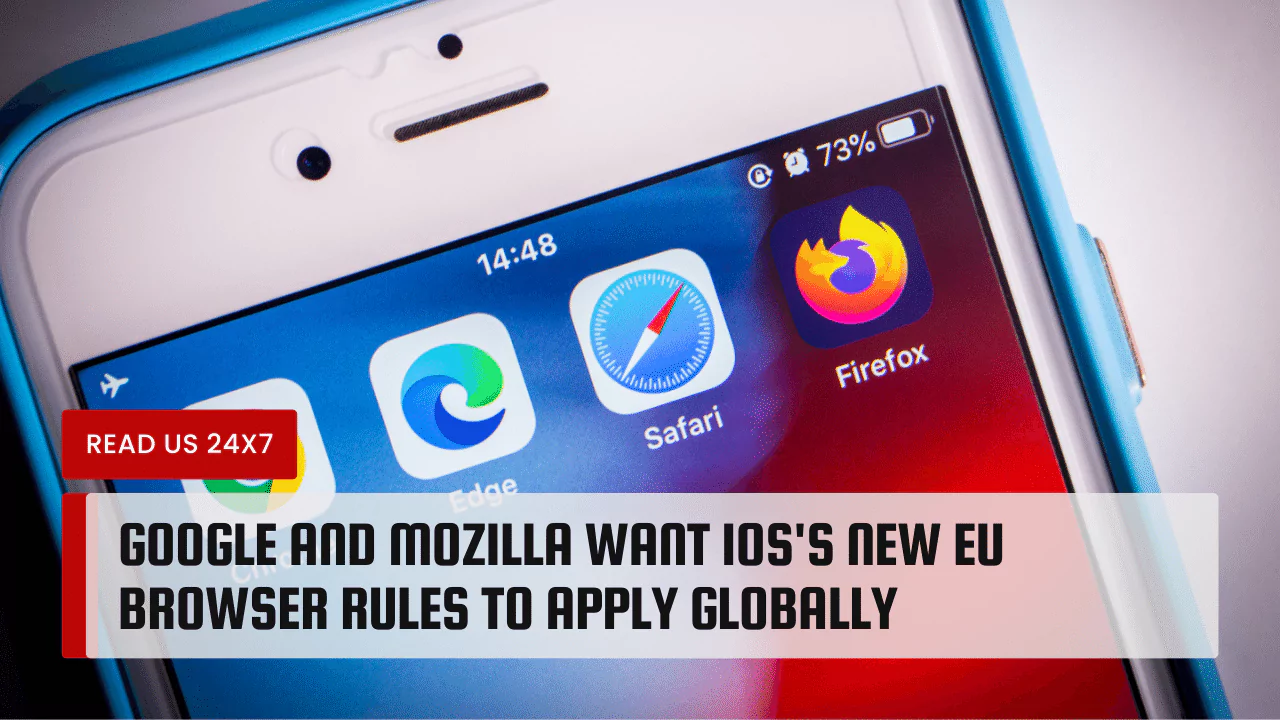Apple’s recent announcement regarding changes to its iOS browser rules has sparked significant debate and discontent among tech giants Google and Mozilla. The proposed alterations, mandated by the European Union’s “Digital Markets Act,” aim to address concerns surrounding Big Tech monopolies and promote fairness and interoperability. However, Google and Mozilla are voicing their objections, particularly regarding the limitations imposed by Apple’s proposed policies.
Apple’s New iOS Browser Rules
The EU’s Digital Markets Act is a regulation that aims to prevent Big Tech companies from abusing their dominant position in the digital market. One of the provisions of the act is that gatekeepers, such as Apple, must allow interoperability and access to their core platform services, such as web browsers.
Currently, all iOS browsers are required to use Apple’s Safari engine, WebKit, which means that they cannot offer the same features and performance as their counterparts on other platforms. Apple claims that this is necessary to ensure security, privacy, and compatibility on iOS devices.
However, under the new rules, Apple will have to allow third-party browsers to use their own engines, such as Google’s Blink and Mozilla’s Gecko, which power Chrome and Firefox respectively. This will enable them to bring their own web rendering code to iPhones and iPads, and potentially offer more functionality and customization to users.
Apple’s framework that allows for alternative browser engines is called BrowserEngineKit, and it has already been released as part of the iOS 17.4 beta. However, Apple has imposed several restrictions and requirements on the use of the framework, which have drawn criticism from Google and Mozilla.
Google and Mozilla’s Criticisms
Google and Mozilla have both expressed their dissatisfaction with Apple’s new iOS browser rules and have accused Apple of creating barriers to prevent true browser competition on iOS.
One of the main complaints is that Apple’s BrowserEngineKit is limited to EU-specific apps, which means that browser vendors will have to build and maintain two separate browser implementations: one for the EU market, and one for the rest of the world. This will create a significant burden and cost for developers, and will also fragment the user experience and the web standards.
Another issue is that Apple’s BrowserEngineKit requires browser vendors to obtain Apple’s approval to use the framework in a production app and to comply with several conditions, such as web standards support, security vulnerability fixes, and privacy consent prompts. While these conditions may seem reasonable, Google and Mozilla argue that they are arbitrary and inconsistent and that they give Apple an unfair advantage over its rivals.
Google’s VP of engineering for Chrome, Parisa Tabriz, commented on Twitter that “Strong agree with @mozilla. @Apple isn’t serious about supporting web browser or engine choice on iOS. Their strategy is overly restrictive, and won’t meaningfully lead to real choice for browser developers.”
Potential Implications for Users and Developers
The implications of Apple’s new iOS browser rules for users and developers are unclear, but they could have both positive and negative effects.
On the positive side, users could benefit from having more browser options on iOS devices, and from being able to use the same browser engine across different platforms. This could improve the web browsing experience, the compatibility with web applications, and the personalization and customization of browser settings and extensions.
On the negative side, users could face confusion and inconsistency due to the different browser implementations for different regions, and due to the potential divergence of web standards and features. Users could also face security and privacy risks if the alternative browser engines are not as secure or as privacy-friendly as Apple’s WebKit.
For developers, the new rules could offer more opportunities and challenges. Developers could leverage the alternative browser engines to create more innovative and diverse web applications, and to reach more users across different platforms. However, developers could also face more complexity and cost due to the need to support multiple browser engines, and to comply with Apple’s requirements and approval process.
The new rules could also have an impact on the web browser market and the web ecosystem as a whole. The rules could increase the competition and the diversity of web browsers on iOS devices and could reduce Apple’s dominance and influence over web standards and web development. However, the rules could also create more fragmentation and inconsistency in the web browser landscape and could lead to more conflicts and disputes between Apple and its competitors.


